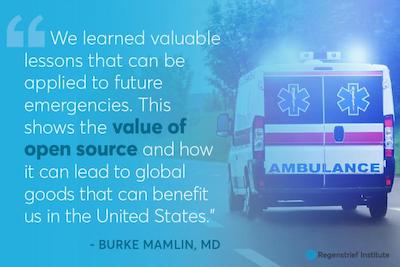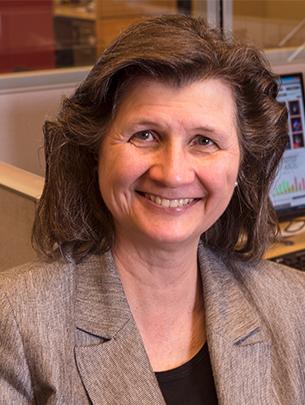COVID-19 patients
See the following -
Artificial Intelligence Cluster Modeling on COVID-19 Data at Scale Offers Opportunity for Improved Patient Outcomes
 Bitscopic Inc., a Silicon Valley based healthcare analytics company, has contracted with the VA Innovation Ecosystem 10X3 for a ground-breaking project to discover best practices in COVID treatment by examining large volumes of medical and other data sets from those who tested positive for COVID-19. The data includes patient health records, socio-economic data, epidemiological data for given geographic areas, and any available genomics or similar indicators for the discovery of significant patterns in patient subpopulations that can lead to improved care protocols and outcomes.
Bitscopic Inc., a Silicon Valley based healthcare analytics company, has contracted with the VA Innovation Ecosystem 10X3 for a ground-breaking project to discover best practices in COVID treatment by examining large volumes of medical and other data sets from those who tested positive for COVID-19. The data includes patient health records, socio-economic data, epidemiological data for given geographic areas, and any available genomics or similar indicators for the discovery of significant patterns in patient subpopulations that can lead to improved care protocols and outcomes.
- Login to post comments
Emergency Open Source EMR Created In A Week To Respond To Covid-19 Crisis
 A team from Regenstrief Institute leveraged OpenMRS, a global open-source electronic medical record (EMR), to create an emergency EMR for Indianapolis first responders preparing for a possible influx of COVID-19 patients. This process was completed in a week to allow Indianapolis Emergency Medical Services (IEMS) to register patients, collect basic clinical information, and send these encounters to Indiana's health information exchange, a crucial element to help the response to the COVID-19 pandemic...This work demonstrates that it is possible to leverage existing tools to create EMRs in emergency situations to improve crisis response. "We learned valuable lessons from this experience that can be applied to future emergencies. This system can be adapted to work in other states or even countries, and it can be done very quickly," said Burke Mamlin, M.D., a project leader and member of Regenstrief's Global Health Informatics program. "This shows the value of open source and how it can lead to global goods that can benefit us in the United States."
A team from Regenstrief Institute leveraged OpenMRS, a global open-source electronic medical record (EMR), to create an emergency EMR for Indianapolis first responders preparing for a possible influx of COVID-19 patients. This process was completed in a week to allow Indianapolis Emergency Medical Services (IEMS) to register patients, collect basic clinical information, and send these encounters to Indiana's health information exchange, a crucial element to help the response to the COVID-19 pandemic...This work demonstrates that it is possible to leverage existing tools to create EMRs in emergency situations to improve crisis response. "We learned valuable lessons from this experience that can be applied to future emergencies. This system can be adapted to work in other states or even countries, and it can be done very quickly," said Burke Mamlin, M.D., a project leader and member of Regenstrief's Global Health Informatics program. "This shows the value of open source and how it can lead to global goods that can benefit us in the United States."
- Login to post comments
OSI Approves Cryptographic Autonomy License and CERN Open Hardware Licenses
 As the steward of the Open Source Defintion, the Open Source Initiative has been designating licenses as "open source" for over 20 years. These licenses are the foundation of the open source software ecosystem, ensuring that everyone can use, improve, and share software. When a license is approved, it is because the OSI believes that the license fosters collaboration and sharing for the benefit of everyone who participates in the ecosystem. The world has changed over the past 20 years, with software now used in new and even unimaginable ways. The OSI has seen that the familiar open source licenses are not always well-suited for these new situations. But license stewards have stepped up, submitting several new licenses for more expansive uses. The OSI was challenged to evaluate whether these new concepts in licensing would continue to advance sharing and collaboration and merit being referred to as "open source" licenses, ultimately approving some new special purpose licenses.
As the steward of the Open Source Defintion, the Open Source Initiative has been designating licenses as "open source" for over 20 years. These licenses are the foundation of the open source software ecosystem, ensuring that everyone can use, improve, and share software. When a license is approved, it is because the OSI believes that the license fosters collaboration and sharing for the benefit of everyone who participates in the ecosystem. The world has changed over the past 20 years, with software now used in new and even unimaginable ways. The OSI has seen that the familiar open source licenses are not always well-suited for these new situations. But license stewards have stepped up, submitting several new licenses for more expansive uses. The OSI was challenged to evaluate whether these new concepts in licensing would continue to advance sharing and collaboration and merit being referred to as "open source" licenses, ultimately approving some new special purpose licenses.
- Login to post comments
Pandemics Are the Mother of Invention
 Many believe that the Allies won WWII in large part because of how industry in the U.S. geared up to produce fantastic amounts of weapons and other war materials. It took some time for businesses to retool and get production lines flowing, during which the Axis powers made frightening advances, but once they did it was only a matter of time until the Allies would prevail. Similarly, COVID-19 is making scary inroads around the world, while businesses are still gearing up to produce the number of ventilators, personal protective equipment (PPE), tests, and other badly needed supplies. COVID-19 is currently outnumbering these efforts, but eventually we'll get the necessary equipment in the needed amounts. Eventually. What intrigues me, though, is how people are innovating, inventing new solutions to the shortages we face. I want to highlight a few of these:
Many believe that the Allies won WWII in large part because of how industry in the U.S. geared up to produce fantastic amounts of weapons and other war materials. It took some time for businesses to retool and get production lines flowing, during which the Axis powers made frightening advances, but once they did it was only a matter of time until the Allies would prevail. Similarly, COVID-19 is making scary inroads around the world, while businesses are still gearing up to produce the number of ventilators, personal protective equipment (PPE), tests, and other badly needed supplies. COVID-19 is currently outnumbering these efforts, but eventually we'll get the necessary equipment in the needed amounts. Eventually. What intrigues me, though, is how people are innovating, inventing new solutions to the shortages we face. I want to highlight a few of these:
- Login to post comments
University of Chicago Awarded $20 Million To Host COVID-19 Medical Imaging Center
 A new center hosted at the University of Chicago-co-led by the largest medical imaging professional organizations in the country-will help tackle the ongoing COVID-19 pandemic by curating a massive database of medical images to help better understand and treat the disease. Led by Prof. Maryellen Giger of UChicago Medicine, the Medical Imaging and Data Resource Center (MIDRC) will create an open-source database with medical images from thousands of COVID-19 patients. The center will be funded by a two-year, $20 million contract from the National Institute of Biomedical Imaging and Bioengineering at the National Institutes of Health (NIH).
A new center hosted at the University of Chicago-co-led by the largest medical imaging professional organizations in the country-will help tackle the ongoing COVID-19 pandemic by curating a massive database of medical images to help better understand and treat the disease. Led by Prof. Maryellen Giger of UChicago Medicine, the Medical Imaging and Data Resource Center (MIDRC) will create an open-source database with medical images from thousands of COVID-19 patients. The center will be funded by a two-year, $20 million contract from the National Institute of Biomedical Imaging and Bioengineering at the National Institutes of Health (NIH).
- Login to post comments